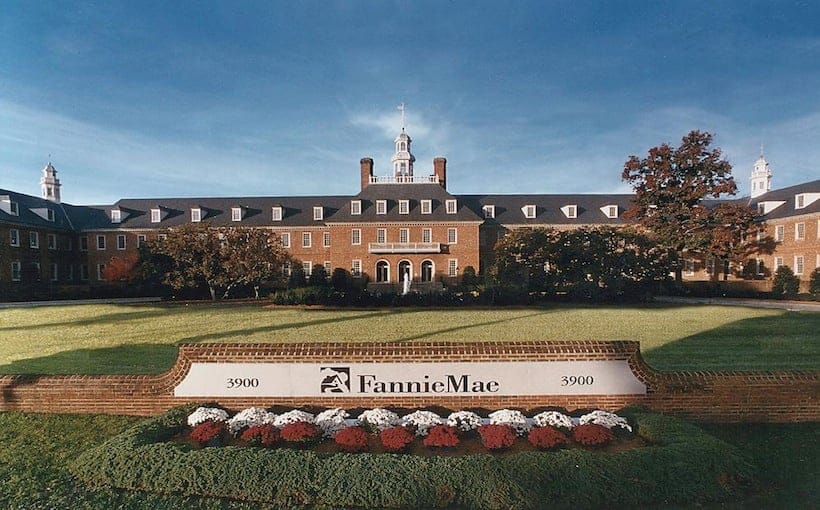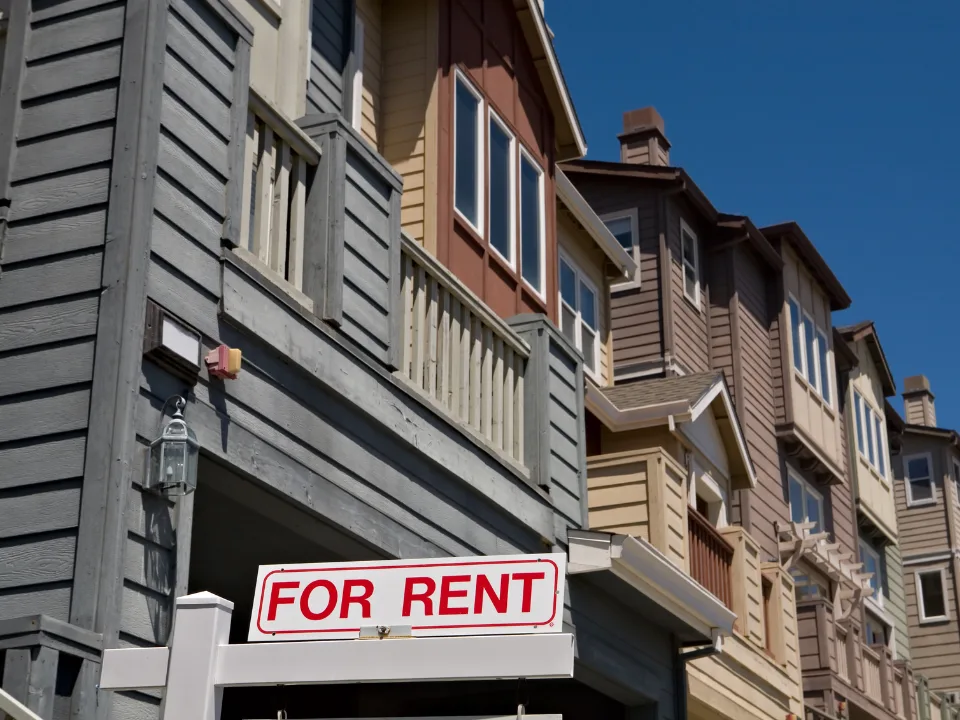L.A. Commercial Property Sales Slump as Cap Rates Rise Post-Fed Pause
Plus: Nextdoor claims JLL failed to verify square footage to get a larger commission.
Together with
Good morning. Tomorrow, we’re unveiling insights from our collaboration with the John Burns and CRE Daily Fear and Greed Survey. Plus, look out for a MAJOR drop about our winter merch collection, specially designed for this year’s holiday season. Don’t miss out!
In today’s issue: CRE activity in LA has significantly declined this year due to a noticeable lag in sellers’ perception of cap rates. Nextdoor is suing JLL over false advertising of the size of its San Francisco HQ. Meanwhile, the Federal Housing Finance Agency sets multifamily loan purchase caps of $70B for Fannie Mae and Freddie Mac.
Today’s issue is brought to you by FNRP. Grow your wealth with grocery-anchored, multifamily, and industrial commercial real estate.
👋 First time reading? Sign up.
🎁 Want free merch? Share this.
Market Snapshot
|
|
||||
|
|
*Data as of 11/15/2023 market close.
SETTING EXPECTATIONS
L.A. Commercial Property Sales Slump as Cap Rates Rise Post-Fed Pause
The commercial real estate market in Los Angeles is experiencing a significant downturn, with the impact extending beyond office spaces. A recent report from NAI Capital highlights rising cap rates, interest rates, and the impact of Measure ULA as key contributors to this decline.

By the numbers: Compared to last year, multifamily sales dropped by 65%, while industrial, retail, and office sales fell 53%, 52%, and 51%. Average PSF sales prices for office properties are down 42%, while retail, multifamily, and industrial assets sell for 23%, 18%, and 4% less than in 2022. Buyers and sellers must also face discrepancies between cap rate expectations and current market rates.

Zoom in: There’s a notable lag in the adjustment of sellers’ perceptions of cap rates, which remain priced at 4.5-5%, despite the market hovering around 6.5%. This gap is projected to align by early 2024. The gap between the U.S. 10-Year Treasury Yield and commercial real estate cap rates, historically around 250 basis points, has widened, presenting challenges in deal-making.
Miserable measure: The LA transfer tax, Measure ULA, has drastically impacted apartment and CRE sales. Deals over $5M face a 4% tax, while sales exceeding $10M are hit with a 5.5% tax. In response, sellers have been selling distressed office buildings at significant discounts. However, convincing sellers to sell in the current market conditions is tough, as they cling to prices from years ago.
But what about offices? Uncertainty around RTW is slowing the recovery of Los Angeles County’s office market. Landlords are offering incentives like free rent and rent reductions to attract tenants, but these tactics are decreasing office buildings’ market values. Consequently, sales of office buildings have significantly declined, falling 36.6% below the 2020 levels by Q3 2023.
➥ THE TAKEAWAY
Zoom out: In LA’s commercial real estate market, industrial and multifamily have shown resilience amid overall declining sale prices, emerging as growth leaders and a possible hedge against inflation. At the same time, the market continues to adapt to workforce and retail shifts and regulatory changes in housing. However, despite a cooling labor market, rising Treasury yields continue to challenge the real estate sector, affecting both buyer and seller expectations.
A MESSAGE FROM FNRP
Get Access to Monthly Grocery-Anchored CRE Investments
This year, the CRE industry is witnessing a trend focusing on retail properties anchored by grocery stores. Even esteemed sources such as the Wall Street Journal and New York Business Journal have acknowledged this trend’s significance.
Why Join the Grocery-Anchored Movement?
-
Stability in Uncertain Times: People shop for groceries in good times and bad.
-
National Brands & Diverse Tenant Mix = Risk Mitigation: Grocery, dining, gyms, and more
-
100% Passive Income: Zero Hassle & Managed by Professionals
Leading the Way: First National Realty Partners (FNRP)
A frontrunner in this trend is First National Realty Partners (FNRP), a prominent private equity firm specializing in necessity-based commercial real estate. They led the acquisition of grocery-anchored properties in 2022 and currently manage assets worth $2+ billion.
With over 100 real estate experts, FNRP offers a comprehensive approach from investment sourcing to returns optimization. If you prioritize stability, attractive returns, and a fully passive investment experience, consider exploring First National Realty Partners.
TRENDING HEADLINES
-
Brokers lose the battle: Residential real estate brokers are reassuring investors after the $1.8B verdict in the case against NAR, one of the biggest shakeups in the history of US real estate.
-
South Wall Street: Citadel founder Ken Griffin believes Miami could eventually replace New York as the world’s financial center in the future.
-
About to bite the dust: Mall landlord PREIT faces over $1B in upcoming debt payments and warns it may not be able to continue operations.
-
Debt fallout: Brookfield Property Partners reported a $367M net loss in Q3 due to a spike in interest costs on its $67B debt pile.
-
Deal of the day: Real estate investment trust Boston Properties is selling a 45% stake in two MA life sciences properties to Norges Bank Investment Management for $1.66B.
-
We’re watching you: $256M of debt tied to Rise48 buildings has been watchlisted, with properties struggling to cover their debt payments.
-
WeWork unwinding: WeWork has returned one of its largest NY locations to its landlord, RXR (RXRA), after two large clients signed direct office leases with RXR.
-
Numbers don’t lie: Revenue at companies with flexible work-from-home policies grew 4x faster than those with in-person requirements, according to a study analyzing 556 public companies employing 26.5M people across 20 sectors.
-
Real estate stocks soar: Real estate stocks surged 5.3% on Tuesday as investors reacted positively to news of slowing inflation.
-
Shaking things up: Aalto and Final Offer, two proptech startups, are capitalizing on the recent $1.8B verdict against NAR. Aalto allows users to access off-market properties without an agent, while Final Offer lets sellers and buyers negotiate transparently.
-
The next Austin: US markets strive to become the next Austin, TX, with professional services and technology as key factors in growth potential.
-
Bargain hunting for billionaires: NYC’s luxury real estate market is struggling, with high-end trophy apartments sitting unsold and facing discounts of up to 40%.
-
Anti-affordable housing: The NYC Council is proposing bills that would slow down affordable housing construction, increase costs, and limit economic impact. This would exacerbate the housing crisis and hinder job growth.
-
Collateral collapse: Delinquent loans by GVA Real Estate Group have resulted in paused interest payments to some investors in collateralized loans.
-
Bigger in Texas: The Lone Star State’s recent property tax law reforms may become a model case study that shapes future tax trends nationwide, says Stephen Grant of Popp Hutcheson PLLC.
INFLATE GATE
Nextdoor Accuses JLL of Inflating Rent for SF Headquarters, Sparks Legal Battle

Nextdoor, a localized social media platform, signed the lease for its San Francisco headquarters at 420 Taylor St. in 2019. (CoStar)
Nextdoor (KIND) has filed a lawsuit against JLL Inc. (JLL), claiming the brokerage firm did not accurately verify the square footage of Nextdoor’s San Francisco HQ in order to increase its commission.
By the letter of the law: The lawsuit, filed in San Francisco Superior Court, alleges that JLL falsely advertised the building’s size as nearly 116 KSF, about 25% larger than its actual size of just under 90 KSF. This discrepancy resulted in Nextdoor making additional rent payments of approximately $20M over the lease’s duration. It was signed in November 2019.
Secret agreement: Nextdoor also accused JLL of entering into a secret agreement that benefitted the landlord and increased commissions for the brokerage firms involved in the deal. Allegedly, the claims resulted in Nextdoor paying substantially more rent each month for what was essentially non-existent space. JLL’s commission from this agreement amounted to just under $2M.
Conflict of interest: Lastly, Nextdoor’s lawsuit claims JLL’s undisclosed acceptance of a contingent commission agreement created a conflict of interest. JLL served the landlord’s interests without informing or seeking consent from Nextdoor, similar to a lawsuit against Newmark (NMRK). OCA-Asian Pacific American Advocates accused Newmark of not disclosing the size of an office building, resulting in financial loss.
➥ THE TAKEAWAY
Why it matters: Nextdoor’s lawsuit against JLL demands compensation for commissions, punitive damages, and legal fees, and seeks an injunction against undisclosed commissions. This action reflects increasing scrutiny in the commercial real estate industry, especially after the NAR’s verdict in the residential market. The case could prompt tighter regulations to protect tenant rights and prevent broker misconduct.
QUICK HITS
📖 READ: In the fight for more affordable homes, Vail, CO, and Nantucket, MA, are using tactics like deed restrictions to ease the affordable housing crunch. Learn more in this WSJ article.
🖥️ WATCH: In this CNBC segment, Andy Halford, CFO of Standard Chartered, believes China’s CRE bubble has “clearly been problematic.” But Standard Chartered remains committed to the Chinese market.
📊 DOWNLOAD: Despite strong construction starts in 2023, new development is declining. Yet Yardi Matrix forecasts increased multifamily supply in the next few years, followed by a decrease.
CARTE BLANCHE
FHFA Announces $140B Loan Purchase Caps for Fannie & Freddie

(connectcre)
The Federal Housing Finance Agency (FHFA) has revealed the newest multifamily loan purchase caps for Fannie Mae (FNMA) and Freddie Mac (FMCC) in 2024: $70B each.
Commitment to affordable housing: The FHFA’s 2024 loan caps for multifamily properties, along with the exemption for workforce housing, bolster the GSEs’ dedication to affordable housing. The $70B figure is $5B lower than the 2023 limit, but still encourages affordable rents for longer periods. The Mortgage Bankers Association (CMBA) thanked the FHFA for their flexibility due to challenging market conditions.
The bigger macro picture: The loan caps reflect the FHFA’s attitude toward current market dynamics and the interest rate environment expected in 2024. The agency acknowledges challenging conditions and seeks to ensure that GSE financing remains an accessible option for housing providers. The exemption of loans supporting workforce housing from the caps recognizes the need for stability and support in the current economic climate.
➥ THE TAKEAWAY
Mission-driven mandate: FHFA’s 2024 multifamily loan caps for Fannie and Freddie, with exemptions for housing types, strengthens the agency’s commitment to affordable rentals. Exemption for workforce housing loans shows the importance of sustainability. The MBA appreciates the FHFA’s flexibility, believing its new measures still aid housing providers in the current, challenging economy. Finally, the FHFA will closely monitor the multifamily mortgage market in 2024, ready to increase caps if needed for liquidity and support.
📈 CHART OF THE DAY
Midwestern Real Estate Is Apparently Really, Really Stable

Source: RealPages
This chart compares YoY rent changes between the US (orange) and the Midwest (purple), illustrating Midwestern stability. Light orange years show US outperformance, often during demand spikes, while purple years highlight the Midwest’s resilience in times of recession or national supply increases. In 2023, despite a national supply peak, the Midwest’s lower construction enabled steady rent growth. This trend of modest, stable growth in the Midwest—in contrast to the more volatile national market—is expected to continue through 2024.
What did you think of today’s newsletter? |




















